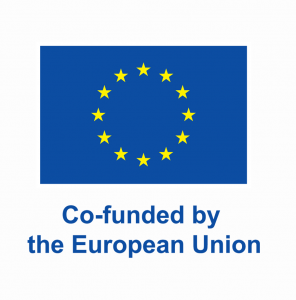The International Press Institute (IPI) is pleased to announce that 15 news organizations from across Europe will take part in IPI’s inaugural Transition Accelerator beginning in January 2023. The Accelerator is part of Media Innovation Europe (MIE), a new joint initiative empowering newsrooms to achieve editorial independence and financial sustainability.
The Accelerator programme includes grant funding, training, coaching and networking over six months to help the participating independent newsrooms design and deliver new products, features and revenue streams that put their audiences first. Each publisher has pioneering plans for innovation in their newsrooms, from targeting younger audiences to breaking into audio and monetizing audiences in sustainable and engaged ways.
The 15 participating newsrooms
- Hromadske Radio, Ukraine, is a non-profit radio broadcaster founded in 2013. A large share of its audience is located in the Donbas region. They will invest in diversifying their audio offering after facing challenges to their business following the Russian invasion of Ukraine.
- Wydawnictwo Zwierciadlo, Poland, is a monthly magazine that reports on social issues and mental health for women. An established name in Poland’s media scene, Wydawnictwo Zwierciadlo will apply audience research to digitize and expand its mental health and well-being product offering to double down on its financial sustainability.
- LUPA Crime and Corruption Reporting Network, Montenegro, is a non-profit association focused on investigative journalism. The LUPA team will invest in audience research to reach new segments, innovate how they distribute content, and further monetize their product.
- Átlátszó Erdély, Romania, is an independent nonprofit doing investigative journalism for the minority-language Hungarian community living in Transylvania. Their project will build sustainable ways to reach and engage audiences as they continue to work on building trust with readers in an environment with an over-dependence on social media for news.
- RADAR Magazine, Italy, was founded in 2020 and focuses on telling compelling stories on climate crisis, the environment and social justice. They will work on building a sustainable reader revenue model to continue delivering their essential reporting on climate change.
- Apulum Forum Association, Romania, is a non-profit specializing in civic education. The association launched a series of popular social media channels to reach and inform young Romanians. Apulum will grow its social video strategy, working with young journalists on the latest platforms to create a sustainable editorial and business model.
- Lazy Women, France, is a community-driven platform created by young women from all over Europe and beyond, building a community that embraces the diversity of womanhood. The team will design a participatory and transparent business model that is sustained through its community and continuously informs its strategy through user research.
- El Orden Mundial, Spain, focuses on bringing international affairs to a general Spanish-language public in innovative, digital-first ways. They will use this opportunity to develop a strategy for multimedia products focused on young people.
- Večer Mediji, Slovenia, is an established news brand offering local and national audiences in-depth and timely journalism on political, social, local and science-related topics. Večer will invest in its capacity to analyze and engage with its users to grow its reader revenue products.
- Outriders, Poland, is a non-profit newsroom covering global issues that have a local impact through innovative, interactive storytelling. Outriders will diversify its audio offering to more deeply engage with its users.
- English Club, North Macedonia, is an online media outlet reporting on local, regional and national issues focused on social issues and development policies. They will leverage a closer understanding of their audience to build a content strategy responding to their community’s everyday experience with climate change.
- Maldita.es, Spain, is a leading non-profit foundation and media outlet focusing on the fight against misinformation and promoting transparency through their fact-checking, media literacy and data journalism work. The Maldita team will increase meaningful engagement with their community through an expansion of its digital offering.
- Andererseits, Austria, is the first publisher in Austria where people with and without disabilities work together and report on socio-political themes like work and education. The Vienna-based team plans to grow reader revenue and increase engagement with its community as part of a wider effort to build a sustainable business model.
- Press Freedom Foundation, Serbia, is an independent newsroom committed to promoting and protecting human and minority rights and democratic values in its journalistic content. They will build their capacity to collect and disseminate investigative journalism in a safe and secure way.
- Iașul Nostru (Our Iași), Romania, is a newsletter-first city publication covering and engaging with the community in the city of Iași in eastern Romania. The team will grow its product offering to increase engagement with its users in the city based on user research.
Accelerator activities
The newsrooms were chosen by an independent jury of European media innovators from Spain, Norway, Portugal, Slovakia and Hungary.
The main activities of the Accelerator are:
- Virtual training modules
- In-person innovation design and product bootcamp
- Bi-weekly coaching
- Grant support
- Community building
Newsrooms begin with the intensive innovation design, product development and audience research training that culminate in an in-person bootcamp. The bootcamp will include audience-centric design training, project design reviews and product field canvas development. Based on the innovation design review and product field canvas, publishers will then establish a 100-day plan for building and delivering a prototype of their project proposal.
The Transition Accelerator builds on IPI’s research into local and minority-language community media in Europe and in comparison with media worldwide to learn and share what is working in different contexts. IPI’s research has provided the first major global look at what is happening with local media. It is the first attempt to paint the picture of the journalists, editors and media-builders globally who are rebuilding their local media ecosystems to meet the needs of and build trust with their audiences and provide the best support for democracy and defence against disinformation.
For updates on the programme, sign up to our innovation newsletter here!
The Transition Accelerator is part of the Media Innovation Europe (MIE) project, co-funded by the European Commission. The programme is run by the International Press Institute, the Thomson Foundation, the Media Development Foundation and BIRN and is intended to empower media outlets as they navigate the digital transition, giving them journalistic tools and skills in diverse products and business structures in order to reach audiences and bring sustainability.
IPI is grateful for the support of the European Commission and Friedrich Naumann Foundation for making the Accelerator possible.




